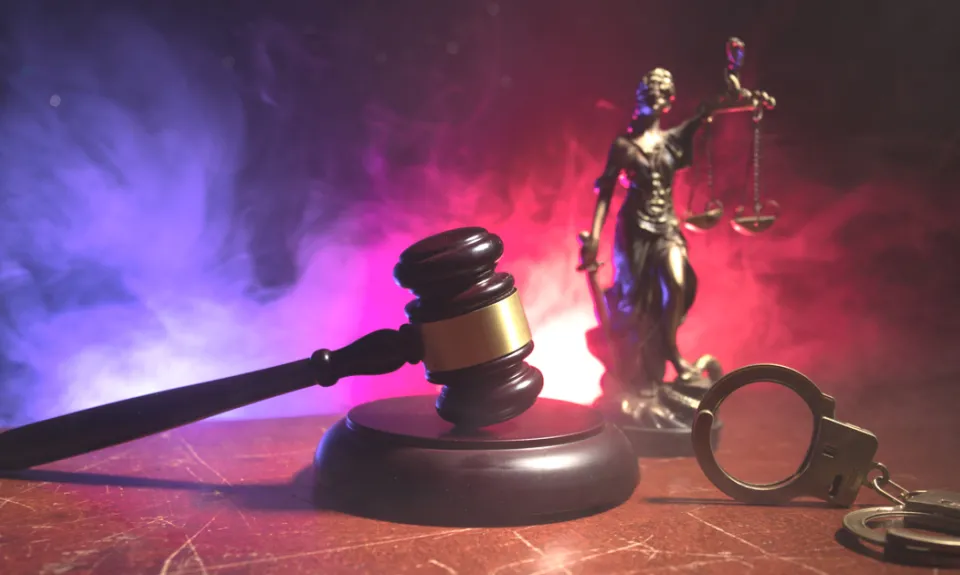“Confirmed Judges, Confirmed Fears” is a blog series documenting the harmful impact of President Trump’s judges on Americans’ rights and liberties. Cases in the series can be found by issue and by judge at this link.
Trump Sixth Circuit judge Eric Murphy cast the deciding vote to excuse police violation of an African-American man’s rights by continuing to interrogate him even after he made clear that he did not want to be questioned further, in direct violation of the Supreme Court’s Miranda decision. The May, 2021 decision is in Grayson v Horton, 2021 U.S. App. Lexis 13172 (6th Cir. May 3, 2021).
Clinton Rayshawn Grayson, an African-American man, was arrested by police because they suspected he was one of four masked men who participated in a robbery and fatal shooting at a store in Michigan. After initial questioning, Grayson “unequivocally asserted” his constitutional right to remain silent, but the police “continued to interrogate” him anyway, in direct violation of the Supreme Court’s well-established Miranda decision. Grayson then stated that he was one of the three men shown in a video during the incident, that statement was improperly admitted into evidence against him, and he was convicted of felony murder.
A state court of appeals acknowledged that the police had improperly interrogated him after he made clear he did not want to talk with them, but claimed the admission of the statement was “harmless error” because of other evidence against Grayson. Acting on his own without a lawyer, he filed for federal post-conviction relief in a district court, which denied his request. Again acting without a lawyer, Grayson appealed to the Sixth Circuit.
In a 2-1 unsigned decision in which Trump judge Murphy was the deciding vote, the court affirmed the lower court and rejected Grayson’s appeal. The panel acknowledged that the police had violated Grayson’s rights and that his statement was “erroneously admitted” into evidence at trial, and that under Supreme Court precedent, federal post-conviction relief should properly be granted if the federal court has “grave doubt” about whether the constitutional violation and improper admission of evidence had “substantial injurious effect or influence” on the jury’s guilty verdict. The majority claimed that this standard was not met, however, because the government allegedly presented a “compelling case even without Grayson’s confession,” including “picture and video evidence” and records of frequent cellphone calls among Grayson and the three others.
Judge Karen Nelson Moore strongly dissented. Without the statement improperly obtained from Grayson by the police, she explained, ‘this is little more than a case of guilty by association – and a weak one at that.” The picture and video evidence was “highly suspect,” she continued, since the men were masked and a security guard ‘failed to identify” Grayson in an earlier video of the men at an apartment building. The cell phone data, she went on, shows “at best” that he may have been “in the vicinity” of the store on the night of the incident and that he had been “interacting” by phone with the other men, his friends, and the interaction stopped when they were robbing the store, all of which “does little to implicate Grayson.” Moore pointed out that “neither of the witnesses” who saw men in dark clothes enter the store “identified Grayson,” and that there was “no DNA, fingerprint, or other physical evidence connecting Grayson to the crime scene.”
“In short,” Judge Moore concluded, there were “grave doubts” that Grayson would have been convicted if not for the alleged confession that was illegally obtained by the police. As a result of Trump judge Murphy’s deciding vote, however, another Black man will remain in prison, and police will see another example of federal judges excusing misconduct concerning interrogation. In fact, this decision is disturbingly similar to another recent case where a Trump judge cast the deciding vote to excuse police misconduct in violating a person’s Fifth Amendment rights. This case reinforces the importance of promptly filling all federal court vacancies with Biden nominees as part of our fight for our courts.
